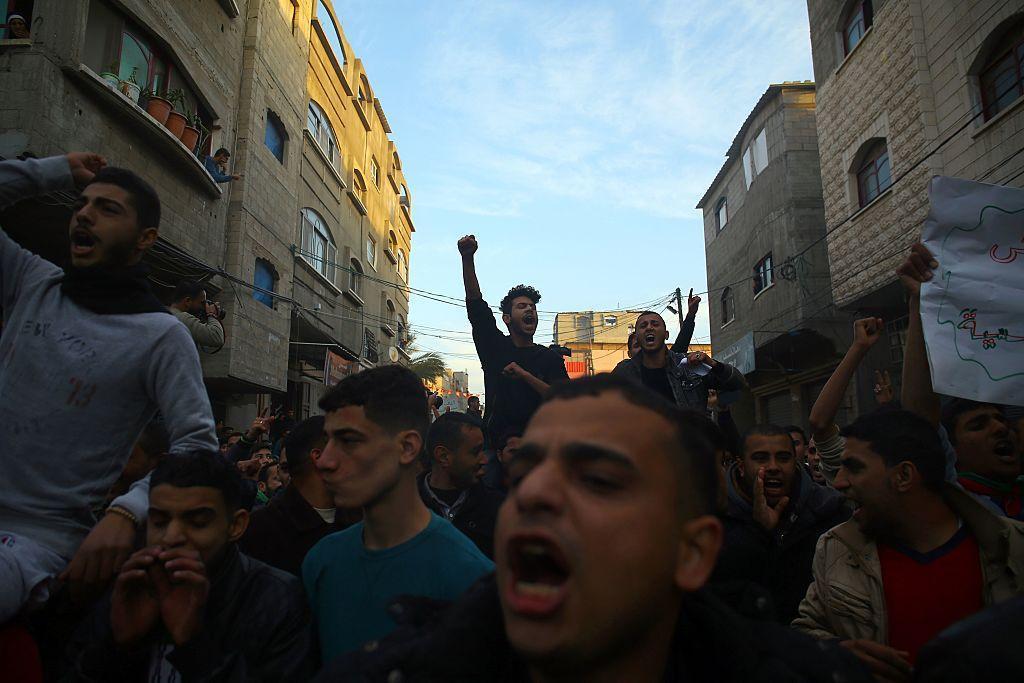Gaza’s only power plant has run out of fuel leaving Palestinian residents without electricity
Two million people in the coastal enclave are now coping with between two - four hours of power a day as health ministry warns cuts could endanger lives

The only power plant in the Gaza Strip has ceased producing electricity after running out of fuel, crippling the entire enclave with massive power cuts.
Around two million people in the Hamas-run territory are now coping with just two - four hours of power a day, leaving schools, hospitals and businesses unable to operate fully.
Since the water supply to many households relies on electric pumps, many people are also having difficulty washing, showering, cooking and doing laundry.

In recent months Hamas has used Qatari and Turkish funding to buy diesel to run the plant from Israel, but the militant group has accused the West Bank’s Palestinian Authority (PA), which coordinates delivery, of driving up prices through unfair taxation.
At a news conference on Monday, Gaza power authority Deputy Chairman Fathi al-Sheikh Khalil said that a new “dispute” between the electricity authority in Gaza and the Fatah-led PA meant that it was not clear when the next shipment would arrive.
The plant could not afford to pay the huge fuel taxes imposed by the PA now that the foreign funding has run out, he added, accusing the PA of attempting to “ignite an electricity crisis.”
Hamas seized control of Gaza from Fatah, the main PA party based in the West Bank, in 2007, leading to a land and sea blockade by Israel which has made it difficult to import goods and services and aggravated power shortages.
While the area has always had to contend with unreliable power - at full capacity it operates for just eight hours a day - in recent months the issue has reached crisis levels, with the local health ministry warning that the frequent cuts endanger patients’ lives.
Over the winter some resorted to burning coal and scrap wood indoors or using old, unreliable kerosene heaters. In January the dire conditions led to rare public protests against Hamas’ power.
Israel has approved both a new high-voltage power line to the area to operate desalination plants for clean water, as well as a natural gas pipeline for electricity, but both initiatives will take years to complete. A mooted power-sharing agreement in Gaza between Hamas and Fatah, which would ease the crippling blockades, has repeatedly failed to materialise.
More than 80 per cent of Gaza’s population is reliant on international aid.
The fuel shortage is just one of the enclave’s severe issues, where 96 per cent of the water is undrinkable, and 46 per cent of people are unemployed.
“The UN has been warning for some years that the chronic problems of Gaza are accumulating to the extent that we may be approaching a tipping point at which Gaza becomes unlivable," Robert Piper, the UN’s deputy special coordinator for the Middle East Peace Process, told The Jerusalem Post.
Join our commenting forum
Join thought-provoking conversations, follow other Independent readers and see their replies
Comments
Bookmark popover
Removed from bookmarks